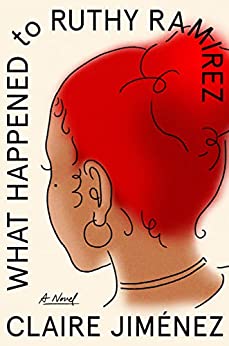More on this book
Community
Kindle Notes & Highlights
¿Cómo habré de llamarme cuando sólo me quede recordarme, en la roca de una isla desierta? —Julia de Burgos, “Poema para mi muerte”
I was proud of my depression. I’d read somewhere on the internet that it was a sign of extreme intelligence, and I’d started to consider depression as some type of X-ray vision, with which I could see the world clearly in ways that others could not—that is, not only the skin but also the skeleton.
when people think you’re nobody, they’ll say all types of stupid shit in front of you as if you aren’t there.
“That’s why the Lord breaks the teeth of the wicked.” In other words, I’m not going to say it, because I’m a Christian, but, Cuidao, bitch.
what she was trying to teach me, what she was trying to say every time she lifted the belt, was that a lie is a failure of respect. Because she knew she had to make me more afraid of her than of what was outside. But me, as a mother? I never wanted that for my girls—to experience that type of violence, because sometimes getting hit like that made you think you didn’t deserve to fucking smile.
Better than any political science class you could ever take in college, a place like Mariposa’s really taught you how deeply patriarchy was linked to capitalism.
But what good was it, really, to know about a thing, to attach a name to its invisible force, if, regardless, you were gonna constantly be stuck in it?
But nobody had taught me how to manage and negotiate the conversations of white folks, how to make an exit, how to say no.
I strongly believe that we all should be able to choose our own ways to be ashamed.
And sometimes it just felt good to watch these women argue, when so much of your day-to-day life consisted of nodding politely or biting your tongue so that you would not be fired, so that you could buy groceries, so that you could pay rent and take care of your family.
She was all the good parts of me, and sometimes I felt the heftiness of the fact that she had materialized inside my body, from scratch—like she was always waiting to happen, a girl from me, of me, but untouched by my past.
I tell you, the worst type of womanizer is the former geek.
But I swore that the next time Irene decided to be blessed with the Holy Spirit and pass out for an hour after church, I was going to “accidentally” step on one of her fucking fingers.
what type of spiritual guidance am I supposed to expect from a young man like that? It’s like asking a five-year-old to file your taxes.
Say something is bigger than you, like much bigger, like a lot; is it really your fault if you cannot stop it?
It was very endearing and very aggressive, this performance of motherhood.
We were not that kind of family, the type who spoke politely to each other about where and how we were in pain.
For so many years, it had felt like she was trying to overcompensate, for having kids so young or for growing up poor or for being Puerto Rican.
Look how beauty and subservience had so much more currency in this world than a bachelor’s degree in biology.
And as Puerto Rican writer Melissa Coss Aquino has written before in the beautiful essay “Hablando Por un Tubo y Siete Llaves or My Life Is Not a Stereotype, and Neither Am I, Though We Both Fit the Bill,” sanitizing our experiences to “uplift our people” in the eyes of white audiences is an act of “public relations” as opposed to art. She explains, “And art is not public relations.”


